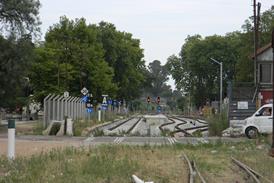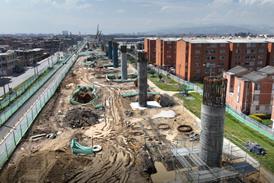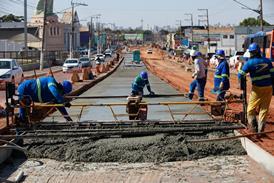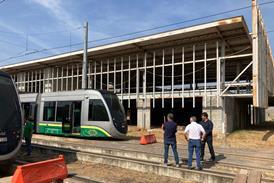THE EFFECTS of the booming economy in China have ricocheted around the world, inflating demand for iron, steel and raw materials. Ships are queuing to unload at Chinese ports, but it seems that the busy railway network is not keeping pace.
Goods and containers awaiting rail transit to inland destinations are mounting up at the ports, and delays are becoming more common. Nearly 70 million tonnes of iron ore was imported in the first four months of 2004, but steelworks and other industrial plants are having to slow their rate of production because insufficient ore and coal is being delivered. Earlier this year, bulk iron ore carriers were having to wait up to 20 days before a berth became available.
Chinese Railways is struggling to cope, with coal previously exported being rerouted to feed domestic steelworks and other local industries. The Beijing - Guangzhou corridor and the east-west route between Lanzhou and the Yellow Sea port of Lianyungan are reported to be especially congested. While Chinese Railways already has numerous projects in hand to extend the network, pressure to build new lines and double single-track routes is growing - in turn fuelling demand for more steel.
Despite the capacity crisis, CR is pressing ahead with plans to run its passenger trains faster, but unless this is managed carefully, the move has the potential to reduce capacity as the differential between freight and passenger train speeds increases.
In the meantime French politicians and industrialists have been wooing the Chinese in their efforts to secure a slice of the future high speed business, and during a visit to Paris last month Chinese Vice-Premier Zeng Peiyan said that French entrepreneurs are welcome to participate in the construction of China’s new railways. He also admitted to Les Echos that ’railway capacity is only meeting 40% of demand’. A group of six Japanese companies is expected to submit a bid at the end of this month to build up to 2000 km of high speed lines in China.




















